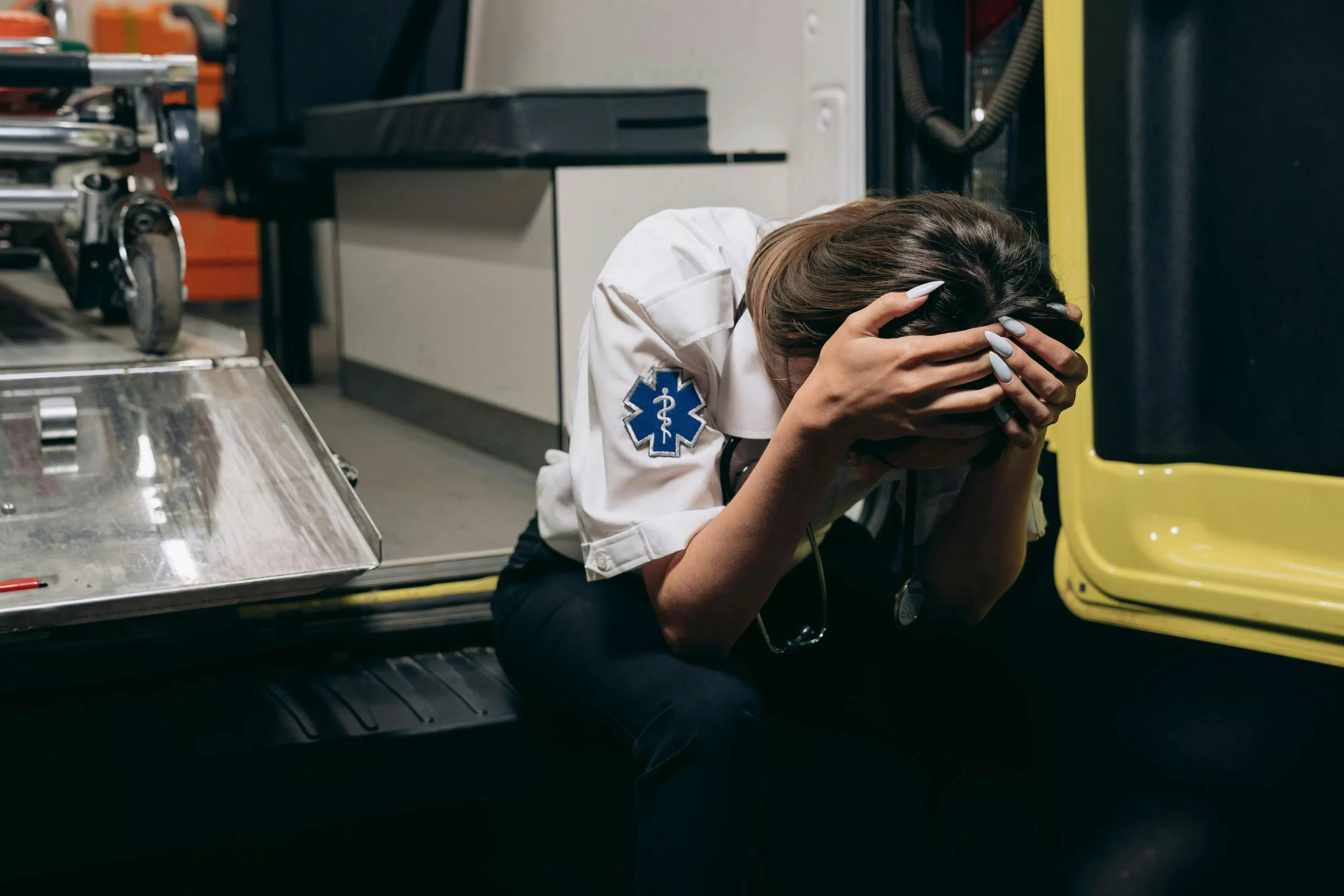

Imagine feeling a weight of hopelessness, where each day is a struggle against a relentless current of despair. This is the battleground of depression, a common but serious mood disorder that affects millions globally. Its symptoms, ranging from persistent sadness to a loss of interest in life, can be crippling. Navigating through the complexities of depression requires understanding its nature and recognizing how this disorder alters thoughts, feelings, and daily functioning. The journey toward recovery often begins with acknowledging the need for assistance—a path that depression therapy in Chicago has illuminated for countless people.
In this article, we’ll delve into the transformative power of therapy in treating depression. From the efficacy of various therapeutic approaches to the emerging convenience of online sessions, we explore the landscape of mental health care tailored to lifting the fog of this pervasive condition.
Understanding Depression:
Depression is a complex mental health condition that reaches far beyond the common perceptions of feeling sad or “blue.” It’s a multifaceted disorder influenced by a myriad of factors, including biological, developmental, emotional, psychological, social, and environmental elements. Understanding depression requires a glance into the specificities that make up someone’s unique experience to truly comprehend the nature of this intricate condition.
Talk therapy and counseling are pivotal in unpacking the layers of depression, offering individuals a clearer understanding of their experiences. It’s critical to recognize that the triggers for depression vary immensely; they can stem from loss, personal disappointments, relationship issues, or even unmet expectations. Recognizing these triggers is the first step in untangling the web of depression.
How Can a Local Therapist Help?
Choosing a therapist near you offers several advantages, including convenience and the opportunity to build a strong, ongoing relationship. Proximity makes it easier to attend regular sessions, which is crucial for long-term success. In addition, local therapists often have insights into community resources and cultural nuances, enhancing the therapy experience.
Why Depression Therapy Near Me Can Change Your Life?
How Does Therapy Improve Accessibility and Consistency?
One of the primary reasons depression therapy is life-changing is its ability to offer consistent support. Opting for depression therapy near me ensures you can easily attend appointments, which is key to making progress. Accessibility reduces the likelihood of missed sessions, enabling you to stay on track with your mental health goals.
Can Therapy Help You Build a Support Network?
Yes, therapy doesn’t just involve one-on-one sessions. Local therapists can connect you with support groups, workshops, or community resources. By seeking depression therapy near me, you open doors to a wider network of individuals and tools that can help you feel less isolated.
How Do Therapists Create Personalized Treatment Plans?
Every person experiences depression differently. Local therapists can create treatment plans that consider your unique experiences and goals. With depression therapy near me, therapists have the flexibility to adapt their methods as you grow and progress, ensuring the best outcomes.
Does Therapy Address the Root Causes of Depression?
Absolutely. Depression is often linked to underlying factors such as trauma, unresolved conflicts, or biological imbalances. Therapy helps uncover these root causes, allowing individuals to tackle the source of their distress. A therapist offering depression therapy near me will work closely with you to identify triggers and develop coping strategies to manage them effectively.
How Does Therapy Enhance Coping Mechanisms?
Therapists provide practical tools for managing depression symptoms. From relaxation techniques to problem-solving skills, these strategies empower individuals to regain control over their lives. Accessing depression therapy near me ensures you can practice these techniques with expert guidance.
Types of Depression Therapy:
Fortunately, there are numerous therapeutic approaches available to adjust treatment to your unique needs. Some of the most efficacious types of depression counseling in Chicago include:
- cognitive behavioral therapy (CBT)
- interpersonal therapy (IPT)
- psychodynamic therapy
- dialectical behavioral therapy (DBT)
All these provide unique perspectives and strategies for combating depression symptoms.
Cognitive Behavioral Therapy (CBT):
CBT is a widely endorsed modality for those grappling with depression. It serves as a cornerstone in therapeutic approaches, helping to equip clients with practical skills that challenge and redirect negative thinking patterns. This therapeutic approach is collaborative, with therapists and patients working jointly to identify detrimental beliefs and behaviors that can bring on and sustain depressive mood. In the context of depression therapy in Chicago, CBT can often be the first line of defense, offering structured sessions where the ultimate goal is to foster healthier thought processes and consequently better mood regulation. By systematically confronting and reconstructing cognitive distortions, patients are empowered to reframe their mindset, cultivating resilience against the weight of depressive states.
Interpersonal Therapy (IPT):
Another therapy approach, interpersonal therapy, or IPT, takes on a different angle – the social dimension of depression. By focusing on the relational facet of a person’s life, IPT seeks to unthread the interpersonal difficulties that can serve as both sources and perpetrators of depressive symptoms. Therapists who specialize in IPT guide clients to recognize and tackle patterns of interaction that may contribute to their distress. And, IPT is structured yet flexible and can offer a supportive space to resolve conflicts and improve communication. It helps individuals foster stronger, healthier relationships with peers, family members, and friends – social resources that are pivotal in the recovery from depression.
Psychodynamic Therapy:
Psychodynamic therapy reveals the historical tapestry behind a person’s depression. It is an exploratory approach that encourages a deeper dive into the unconscious, to unearth the past experiential roots contributing to present emotional turmoil. Therapists proficient in this approach can facilitate a journey inward, helping people understand and remake the narrative of their lives. Psychodynamic therapy stands out in its aim to achieve not only symptom relief but also emotional growth and personal insight.
Dialectical Behavioral Therapy (DBT):
DBT represents a synthesis of cognitive-behavioral techniques and mindfulness principles. It emphasizes emotional regulation through a skills-based program, which is expertly guided by therapists in Chicago’s mental health centers. Ideal for those who experience intense emotional swings alongside depression, DBT focuses on building a suite of abilities for distress tolerance, interpersonal effectiveness, and maintaining a balanced state of mind. The therapy involves individual and group sessions, where participants engage in exercises to increase their mindfulness and enhance self-regulation. DBT can be especially beneficial for those whose depression is entangled with other challenges such as anxiety or behavioral dysregulation.
Online Therapy: A Convenient Option for Treating Depression:
Accessing traditional forms of therapy can sometimes present challenges. This is where online therapy in california emerges as a solution, offering a highly effective means for treating depression while providing the comforts of accessibility and convenience. The virtual approach to mental health care has been gaining momentum, and studies support its efficacy, suggesting that it is comparable to face-to-face interventions in reducing symptoms of depression.
The appeal of online therapy stems from many of its inherent benefits. For one, the geographical hurdles and time constraints that can deter people from seeking help are significantly reduced. Patients can attend sessions from any location, so long as they have an internet connection. This adaptability is particularly beneficial for those with demanding schedules or those who live in remote areas.
How Do I Know If I Need Therapy?
If you’re experiencing persistent sadness, difficulty concentrating, or a lack of interest in daily activities, it might be time to consider therapy. Seeking depression therapy near me can provide clarity on whether professional help is right for you.
How Do I Choose the Right Therapist?
Look for licensed professionals with experience in treating depression. Reading reviews, asking for referrals, and scheduling initial consultations can help you find the best fit. Opting for depression therapy near me allows you to meet therapists in person and build rapport more easily.
Is Therapy Confidential?
Yes, therapy sessions are confidential. Therapists are bound by ethical guidelines to protect your privacy and ensure you feel safe discussing personal issues.
How Long Does It Take to See Results?
Therapy is a process, and each individual’s timeline varies. Some people notice improvements within a few sessions, while others may take longer. Consistency and open communication with your therapist are key to making progress.
Can I Combine Therapy with Medication?
Yes, many individuals benefit from a combination of therapy and medication. Your therapist or psychiatrist can discuss whether this approach suits your specific needs.
Role of Family and Friends in Supporting Someone with Depression:
When someone is battling depression, the presence and support of family and friends become vital. In depression counseling, therapists may involve family members to establish a more robust network of understanding and assistance around the patient. This practice acknowledges that a family history of depression may increase susceptibility to the condition. Consequently, educating loved ones about the illness’s nature can enlighten them on the ways they can offer the most effective support and sustained understanding.
Given that maintaining relationships can be particularly challenging for someone with depression, having family and friends who provide unconditional companionship is crucial. Their role extends beyond presence; they also serve as advocates for their loved one’s need for professional care and supportive services. When these valuable social supports initiate and reinforce the pursuit of professional help at a depression treatment center, it can significantly facilitate emotional and social recovery, proving that addressing depression is not a solitary endeavor but a collective commitment to well-being.
Psychotherapy should be a safe and supportive process, no matter which type of therapy you decide on. When working with a psychotherapist, you should always feel comfortable opening up and sharing your feelings and challenges with depression.





